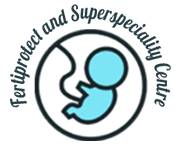Introduction:
Female infertility is a complex and often emotionally challenging condition that affects millions of women worldwide. While the desire to conceive and start a family is a natural part of life for many, various factors can hinder the process of conception. In this comprehensive article, we will delve into the causes and risk factors associated with female infertility, including obesity, age, blocked tubes, hormonal imbalances, and low egg count. Furthermore, we will explore treatment options and provide guidance for those struggling with infertility.
Understanding Female Infertility:
Infertility is defined as the inability to conceive after one year of regular, unprotected intercourse. Female infertility can be caused by a multitude of factors, both physiological and environmental. One of the primary factors contributing to female infertility is obesity.
Obesity and Infertility:
Obesity has been linked to a myriad of health issues, including infertility. Excess body weight can disrupt hormone levels, leading to irregular menstrual cycles and ovulation problems. Furthermore, obesity is associated with insulin resistance, which can interfere with the production of reproductive hormones and impair fertility. Women who are obese may also experience difficulties during pregnancy and are at higher risk of miscarriage and complications.
Age and Fertility Decline:
Another significant factor in female infertility is age. As women age, their ovarian reserve declines, meaning they have fewer viable eggs available for fertilization. Additionally, the quality of the remaining eggs may diminish, increasing the likelihood of chromosomal abnormalities and miscarriage. Women over the age of 35 are particularly susceptible to age-related fertility decline, with the chances of conception decreasing significantly after this age.
Blocked Tubes and Infertility:
Blocked fallopian tubes can also contribute to female infertility. The fallopian tubes play a crucial role in transporting eggs from the ovaries to the uterus for fertilization. When the tubes are blocked or damaged due to conditions such as pelvic inflammatory disease (PID), endometriosis, or previous surgeries, sperm cannot reach the egg, preventing conception from occurring.
Hormonal Issues Preventing Ovulation:
Hormonal imbalances can disrupt the ovulation process, leading to infertility. Conditions such as polycystic ovary syndrome (PCOS) and thyroid disorders can interfere with the production and regulation of reproductive hormones, resulting in irregular or absent ovulation. Without ovulation, the chances of conception are significantly reduced, making hormonal issues a common cause of female infertility.
Low Egg Count and Diminished Ovarian Reserve:
Diminished ovarian reserve refers to a decline in the quantity and quality of a woman’s eggs. This condition can occur prematurely in some women or as a natural part of the aging process. A low egg count reduces the likelihood of successful fertilization and implantation, making it challenging to conceive. Testing for ovarian reserve, including hormone tests and ultrasound scans, can help assess a woman’s fertility potential and guide treatment options.
Treatment Options for Female Infertility:
Fortunately, advancements in reproductive medicine have provided numerous treatment options for female infertility. Depending on the underlying cause of infertility, treatment may include:
- Lifestyle Modifications: Adopting a healthy lifestyle, including regular exercise, a balanced diet, and weight management, can improve fertility outcomes, especially for women who are overweight or obese.
- Ovulation Induction: Medications such as clomiphene citrate or gonadotropins may be prescribed to stimulate ovulation in women with hormonal imbalances or ovulatory disorders.
- Intrauterine Insemination (IUI): IUI involves placing sperm directly into the uterus during ovulation to increase the chances of fertilization. It is often recommended for couples with unexplained infertility or mild male factor infertility.
- In Vitro Fertilization (IVF): IVF is a highly effective assisted reproductive technology that involves retrieving eggs from the ovaries, fertilizing them with sperm in a laboratory, and transferring the resulting embryos into the uterus. IVF can be particularly beneficial for women with blocked tubes, advanced age, or low egg count.
- Donor Eggs or Sperm: For women with diminished ovarian reserve or poor egg quality, using donor eggs may be a viable option. Similarly, donor sperm can be used to overcome male factor infertility or genetic disorders.
- Surgery: In cases of blocked fallopian tubes or other structural abnormalities, surgical procedures such as laparoscopy or hysteroscopy may be recommended to restore fertility.
Conclusion:
Female infertility can be a challenging and emotionally taxing journey for many women and couples. However, with the help of reproductive specialists and advancements in fertility treatment, conception is possible for most individuals. By understanding the causes and risk factors associated with female infertility, individuals can take proactive steps to optimize their fertility and pursue appropriate treatment options. If you or someone you know is struggling with infertility, do not hesitate to reach out to a qualified fertility specialist for personalized care and support.
For more information or to schedule a consultation, visit www.fertiprotectsuperspeciality.com or contact us at +91 9175021447.

